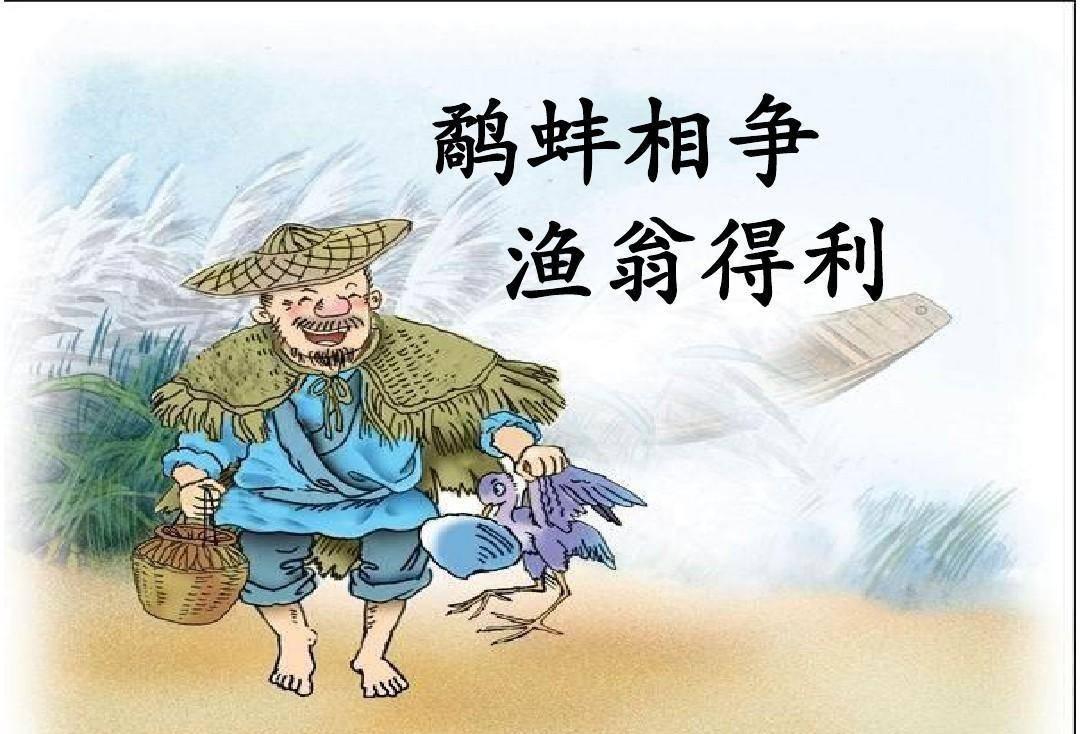这是一则“鹬蚌相争,渔翁得利”的中英文互译谚语故事 故事原文 战国时期,赵国准备攻打燕国,苏代为燕国去劝说赵惠王:“今天我来,路过易水,看见一只河蚌正从水里出来晒太阳,一只鹬飞来啄它的肉,河蚌马上闭拢,夹住了鹬的嘴。鹬说:‘今天不下雨,明天不下雨,就会有死蚌。’河蚌也对鹬说:‘今天你的嘴取不出,明天你的嘴取不出,就会有死鹬。’它们俩谁也不肯放开谁,一个渔夫把它们俩一块捉走了。现在赵国将要攻打燕国,燕赵如果长期相持不下,老百姓就会疲惫不堪,我担心强大的秦国就要成为那不劳而获的渔翁了。所以希望大王认真考虑出兵之事。”赵惠王说:“好吧。”于是停止出兵攻打燕国。 英文译文 During the Warring States period, the State of Zhao was preparing to attack the State of Yan. Su Dai went to persuade King Hui of Zhao on behalf of the State of Yan. "Today, when I passed by the Yi River, I saw a clam coming out of the water to bask in the sun. A snipe flew over and pecked at its flesh. The clam immediately closed its shell and clamped the snipe's beak. The snipe said, 'If it doesn't rain today and doesn't rain tomorrow, there will be a dead clam.' The clam also said to the snipe, 'If your beak can't be pulled out today and can't be pulled out tomorrow, there will be a dead snipe.' Neither of them was willing to let go of the other, and a fisherman caught them both. Now the State of Zhao is about to attack the State of Yan. If Yan and Zhao are locked in a long - term stalemate, the common people will be exhausted. I'm worried that the powerful State of Qin will become the fisherman who gets something for nothing. So I hope Your Majesty will seriously consider the matter of sending troops." King Hui of Zhao said, "Alright." So he stopped sending troops to attack the State of Yan. 寓意解读 中文寓意:“鹬蚌相争,渔翁得利 ” 这个成语用来比喻双方相持不下,而使第三者从中得利。它告诫人们在处理事情时,不要只看到眼前的利益而相互争斗,要懂得权衡利弊,避免两败俱伤,让他人坐收渔利 。 英文寓意:The idiom "When the snipe and the clam grapple, the fisherman profits" is used to metaphorize that when two parties are locked in a stalemate, a third party benefits from it. It warns people that when dealing with things, they should not just focus on immediate interests and fight with each other. They should know how to weigh the pros and cons, avoid a lose - lose situation, and prevent others from reaping the benefits.

